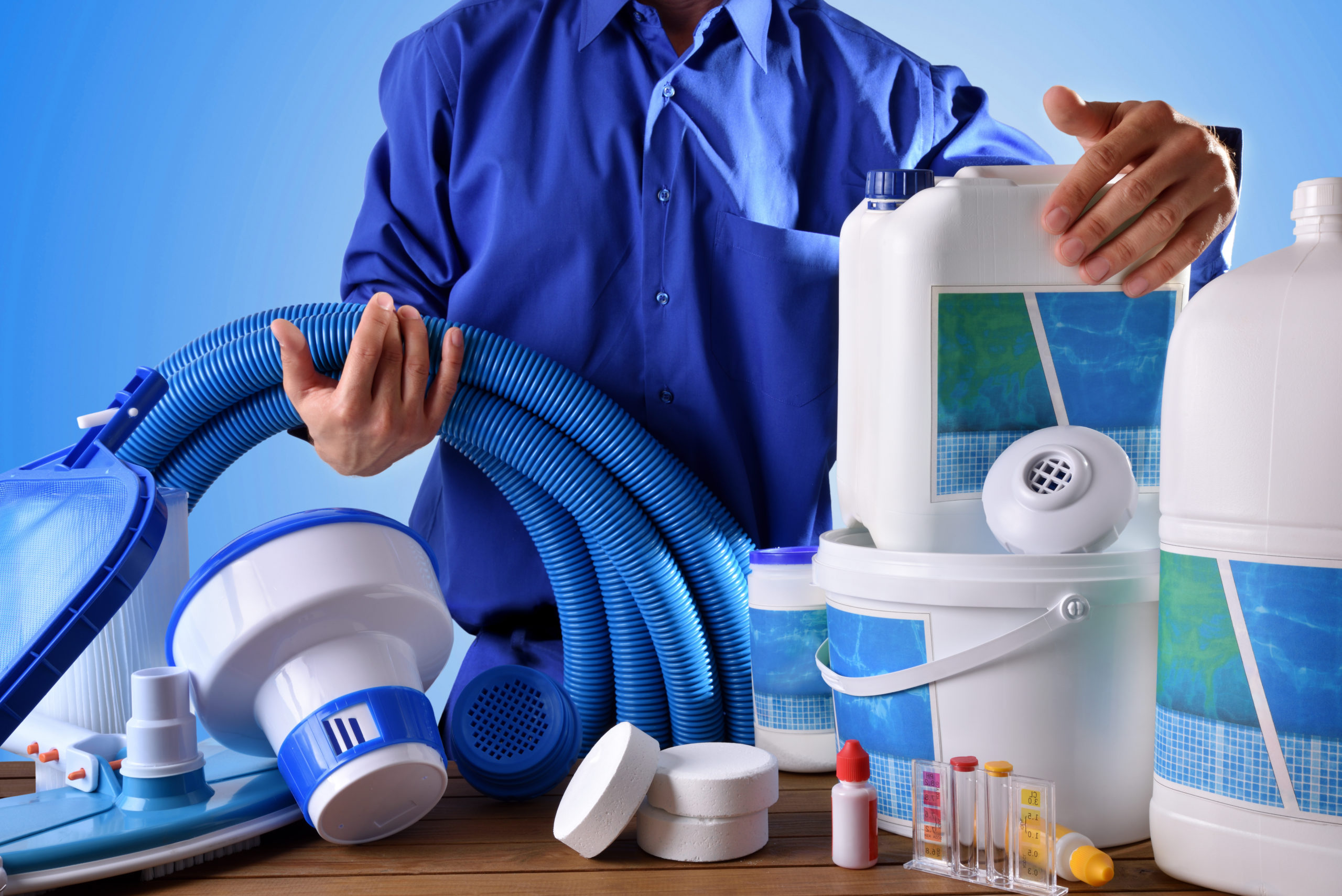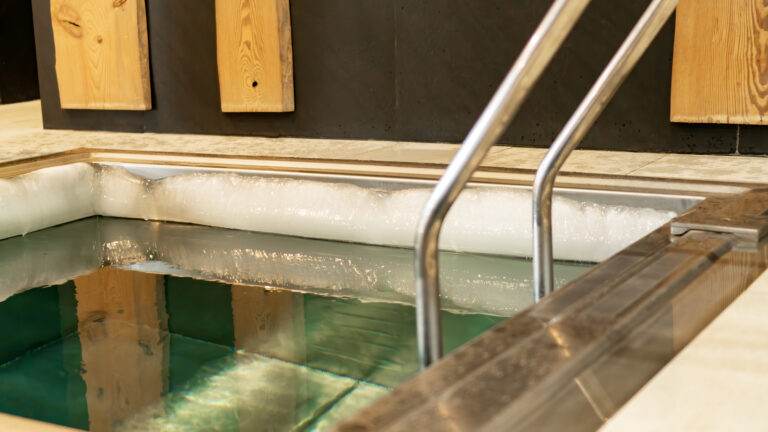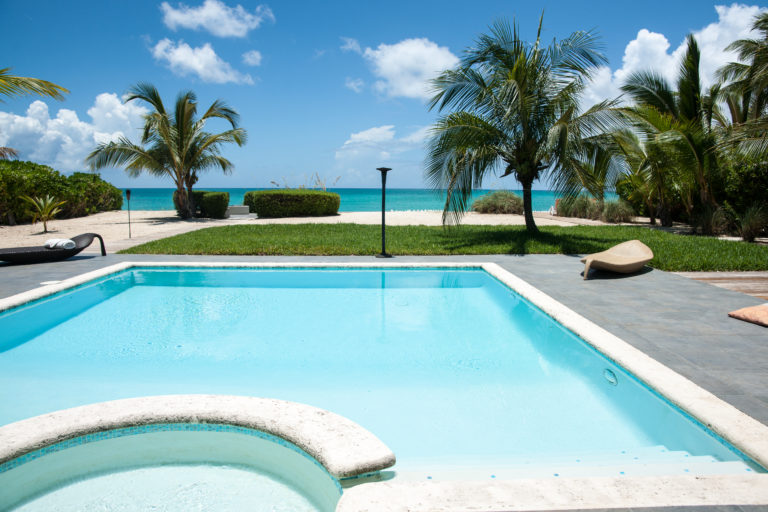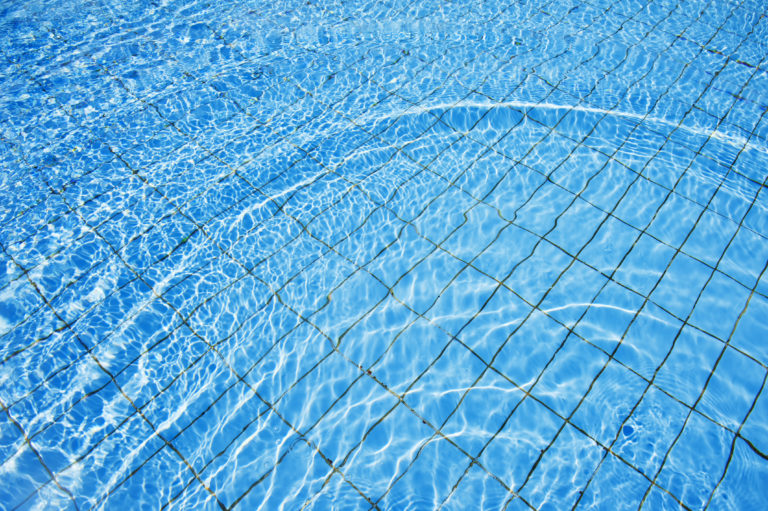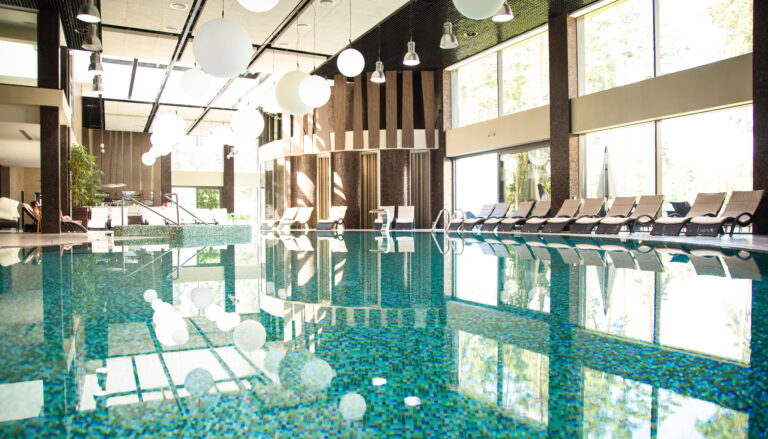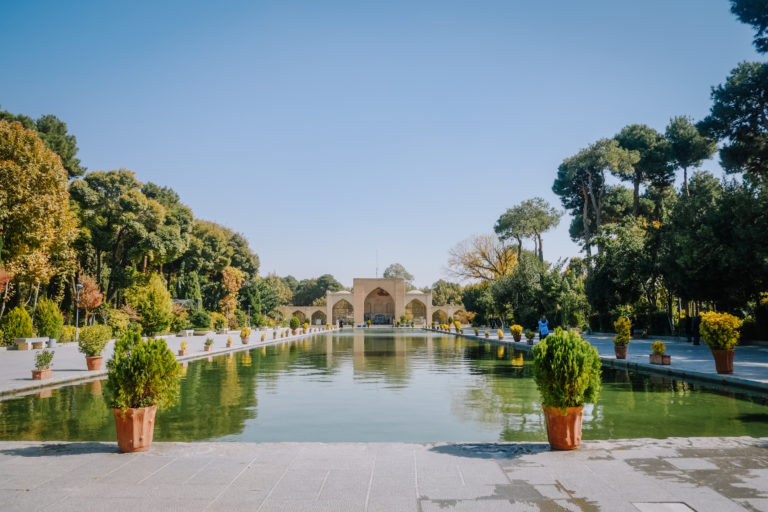Understanding the Relationship Between Pool Size and Maintenance
You’ve got a pool, but do you know how its size impacts maintenance? It’s not just about more water to clean.
In this article, we’ll unravel how pool size influences your maintenance tasks, chemical usage, and energy consumption.
You’ll discover strategies for efficient upkeep no matter what size your pool is.
Get ready to dive into the deep end of understanding your pool better!
Defining Pool Size: The Basics
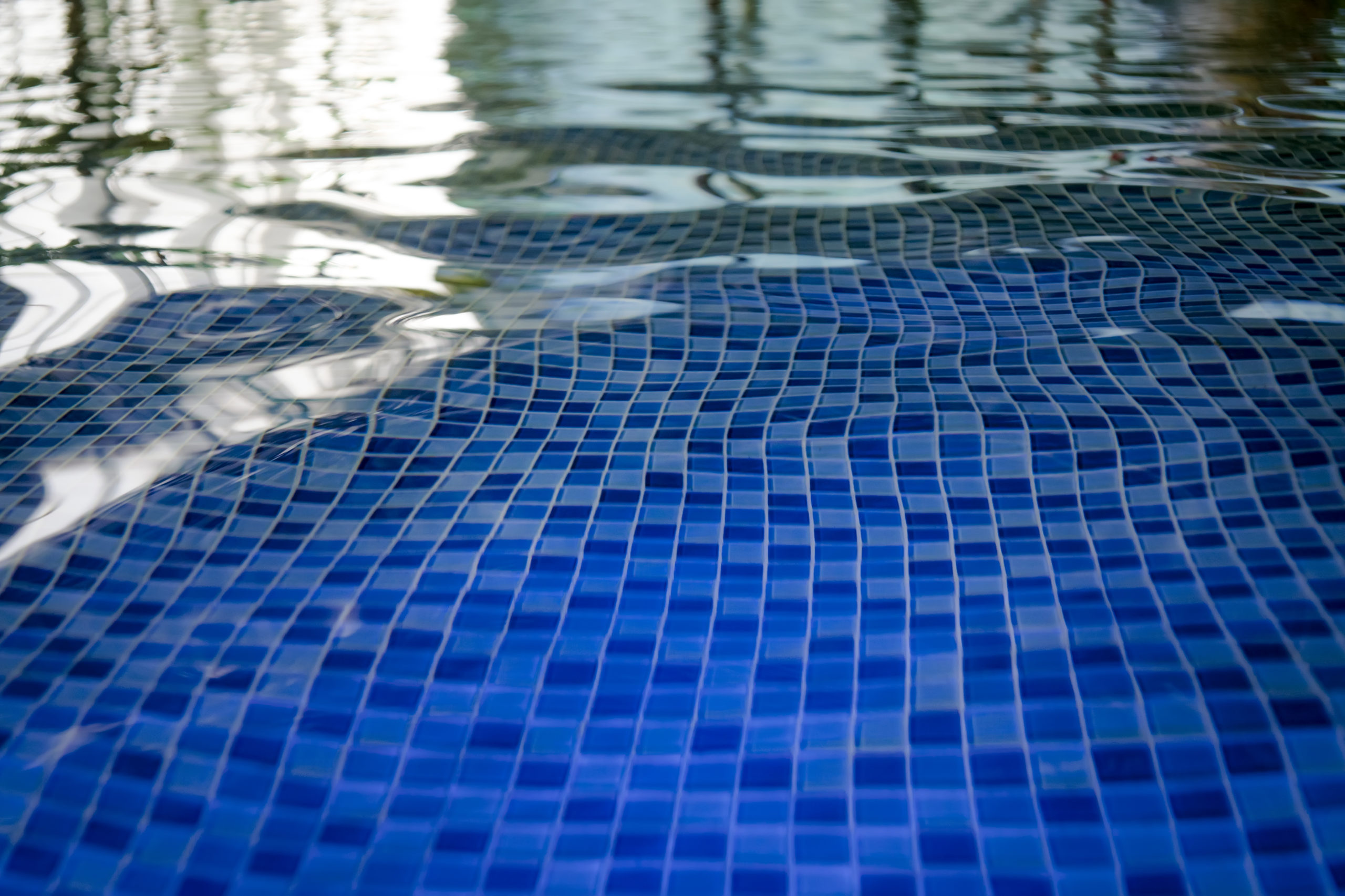
You’ve got to understand that pool size isn’t just about how big it looks; there are basics you need to grasp. Pool size deals with various factors like depth, surface area, and volume. It’s not merely the length and width you see on the surface. These dimensions impact everything from the type of activities you can enjoy in your pool to maintenance requirements.
Now let’s talk about Pool Design Elements. They’re crucial in determining your pool size. For instance, if you want a diving board, slide or a spa attached, they’ll all require additional space. Similarly, adding features like waterfalls or underwater seating will also affect your overall design.
Don’t forget Seasonal Considerations either! If you live where it’s cold part of the year and plan on using your pool year-round, consider an enclosed or heated option which might entail a bigger size due to heating equipment space requirements.
In summary: when determining your ideal pool size, take into account not only its physical dimensions but also elements of its design and seasonal use considerations. Remember: a well-planned pool brings years of enjoyment without regret!
The Significance of Pool Size in Maintenance
It’s crucial to know that the larger your swimming area, the more upkeep it will require. Size related expenses skyrocket with an increase in pool size. Larger pools mean more water and chemicals for maintenance, which directly impacts your wallet.
Here are some factors you should consider:
– Initial Cost
– Bigger pools have higher construction costs.
– Additional features like diving boards or slides add further to these costs.
– Maintenance Expenses
– A larger area requires more cleaning and chemical treatment.
– Increased electricity consumption for water circulation systems also adds up.
Pool longevity is another aspect impacted by size. Bigger pools often demand frequent repairs due to their high usage. Smaller ones might not get as much wear and tear but they can still degrade over time if not maintained properly.
The Role of Surface Area in Pool Maintenance
Let’s not forget that the surface area of your swimming spot also plays a significant role in its maintenance. A larger surface area can drastically affect the surface evaporation rates, leading to more water and heat loss. This means you’ll have to refill and reheat your pool more often, which can significantly increase your maintenance costs.
Now, what can you do about it? That’s where heat retention strategies come into play. By using pool covers when you’re not swimming, you’re reducing both evaporation and heat loss significantly. It’s a simple step that can save you quite a bit of time and money.
And let’s not forget about solar covers either! They not only reduce evaporation but also use the sun’s energy to warm up your pool. So if you live in an area with plenty of sunshine, they could be an excellent option for you.
Remember though: while these strategies help, they don’t eliminate the impact of surface area on pool maintenance completely. You still need regular professional check-ups to keep everything running smoothly. But with careful planning and smart strategies like these, managing a large-surface-area pool doesn’t have to break the bank.
Understanding Pool Maintenance Tasks
You’ve understood the role of surface area in pool maintenance, now let’s dive into the specific tasks involved.
We’re going to explore routine maintenance procedures that’ll keep your pool sparkling clean and ready for a dip at any moment.
But, we won’t stop there – we’ll also tackle special maintenance situations, because let’s face it, things don’t always go as planned, and when they don’t, you’ll want to be prepared.
Routine Maintenance Procedures”
Maintaining a pool’s cleanliness isn’t just about skimming off leaves and debris. Routine procedures like checking water balance, cleaning filters, and inspecting equipment are equally important. They contribute to minimizing maintenance costs while ensuring safety precautions are met.
Consider these points:
– Regularly check the water balance. Unbalanced water can cause damage to the pool’s surface and equipment.
– Clean your filters. Dirty filters won’t work efficiently and may result in higher energy consumption.
– Conduct regular inspections of your equipment. This helps prevent costly repairs or replacements.
– Enforce safety precautions. Make sure ladders are secure, there’s no slippery area around the pool, or sharp objects that could cause injury.
Your attention to these tasks will save you money and keep everyone safe.
Special Maintenance Situations
Special maintenance situations aren’t uncommon and can include dealing with algae blooms, cloudy water, or repairing damaged equipment. You’ll often need specialty equipment to tackle these issues effectively.
Seasonal adjustments are also a part of special maintenance. As the seasons change, so do your pool’s needs. The table below outlines common seasonal tasks:
| Season | Maintenance Task |
| Spring | Clearing debris and balancing chemicals |
| Summer | Frequent cleaning and checking equipment |
| Autumn | Preparing for winter (lowering water level) |
| Winter | Properly covering the pool |
Don’t neglect these special situations! They require just as much attention as routine maintenance. By staying on top of both regular and special care, you’ll ensure your pool’s optimal condition year-round.
How Pool Size Affects Chemical Usage
It’s important to note that the size of your pool directly impacts how much chemicals you’ll need for its maintenance. Larger pools require more substances to maintain chemical proportions and ensure water sanitation. Similarly, smaller pools will require less, but the balance is just as critical.
You might wonder why pool size matters so much in terms of chemical usage. Here are a few reasons:
– Surface area: The larger the surface area, the more exposure there is to sunlight and debris which can alter chemical levels.
– Volume of water: More water means more space for bacteria and algae to grow if not properly sanitized.
– Usage: Larger pools often have more swimmers which introduces oils, sweat, and other contaminants requiring additional chemicals.
– Equipment capacity: Bigger pools need stronger pumps and filters which can also affect how effectively chemicals are distributed.
Always keep track of your pool’s specific needs regarding chemical proportions. Remember that maintaining proper water sanitation isn’t just about adding chemicals; it’s about understanding how these factors interact with your pool’s size.
Through this understanding, you’ll optimize both your maintenance routine and swimming experience.
Pool Size and Cleaning Equipment
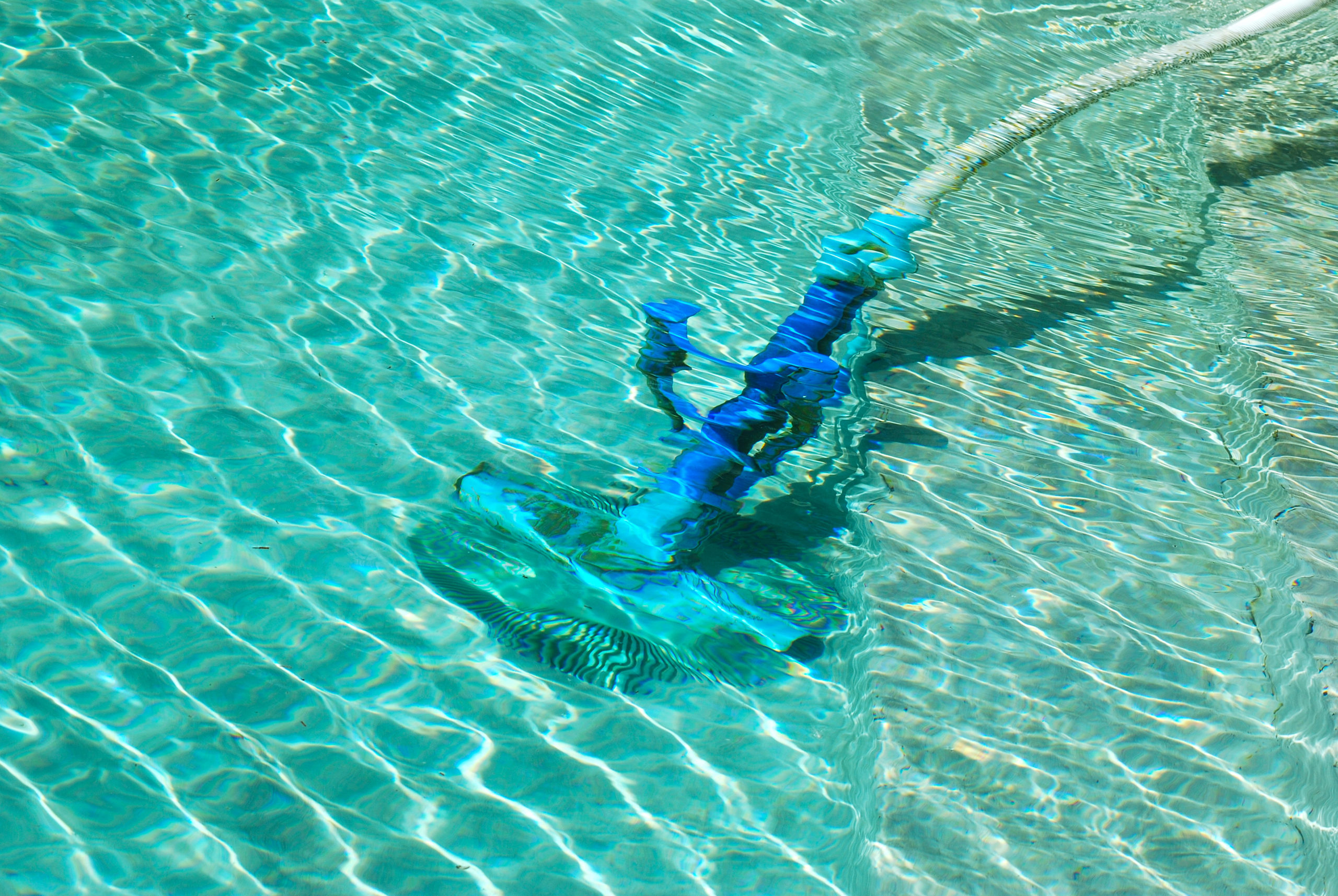
You’ll find that the equipment necessary for cleaning your swimming spot can vary greatly depending on its dimensions. A larger pool will need more robust and often mechanized tools, while a smaller one might only require simple manual devices. This is where Equipment Variety plays a vital role in maintaining your pool.
Pool Accessories too contribute to efficient cleaning and maintenance. For instance, automatic pool cleaners or long-reach skimmers could be great investments for larger pools, whereas handheld vacuum cleaners or small skimmers might suffice for smaller ones.
Below is a table demonstrating an ideal mix of Pool Accessories.
| Pool Size | Manual Cleaning Tools | Automatic Cleaning Tools |
| Small | Skimmer | Handheld Vacuum |
| Medium | Telescopic Pole | Robotic Cleaner |
| Large | Net | Pressure Side Cleaner |
Remember, it’s not just about size but also the amount of debris your pool accumulates that determines the type of equipment you need. So, assess both these factors before making any purchase decisions.
Impact of Pool Size on Energy Consumption
There’s a significant impact on energy consumption based on the dimensions of your swimming spot. The larger your pool, the more energy it requires for heating and maintenance. This increased energy use can affect not only your wallet but also your carbon footprint.
When you consider energy conservation methods, think about implementing some changes that can lighten this load:
1. Invest in Energy-efficient Pool Heating Options: Traditional gas heaters consume a lot of power. Instead, consider solar heating panels or heat pumps which use less energy and are more environmentally friendly.
2. Install a Pool Cover: A good quality cover can reduce water evaporation by up to 95%. Less evaporation means you’ll need to heat and refill your pool less often.
3. Use LED Lights: If night swimming is part of your routine, switch out those old incandescent bulbs for LEDs. They’re not just brighter; they use far less electricity too.
Strategies for Efficient Pool Maintenance
Efficient pool maintenance can significantly reduce your energy consumption, and it’s easier than you might think. By focusing on two key areas: ‘Seasonal Pool Care’ and ‘Debris Management’, you’re well on your way to a more energy-efficient pool.
| Season | Action | Benefit |
| Spring | Remove winter cover, clean filter | Prepares pool for use, reduces strain on pump |
| Summer | Regular skimming and vacuuming | Keeps water clear, reduces need for chemicals |
| Fall | Install leaf net, decrease pump running time | Prevents debris accumulation, saves energy |
| Winter | Cover pool tightly, lower water level | Reduces evaporation loss and heat leakage |
In the springtime, get your pool ready by removing the winter cover and giving your filter a thorough cleaning. During summer months, regular skimming and vacuuming will keep the water clear reducing the need for excessive chemical use. When fall comes around, installing a leaf net can prevent debris from accumulating in your pool while decreasing pump running time can save energy. As winter rolls in, covering your pool tightly and lowering the water level helps reduce both evaporation loss and heat leakage.
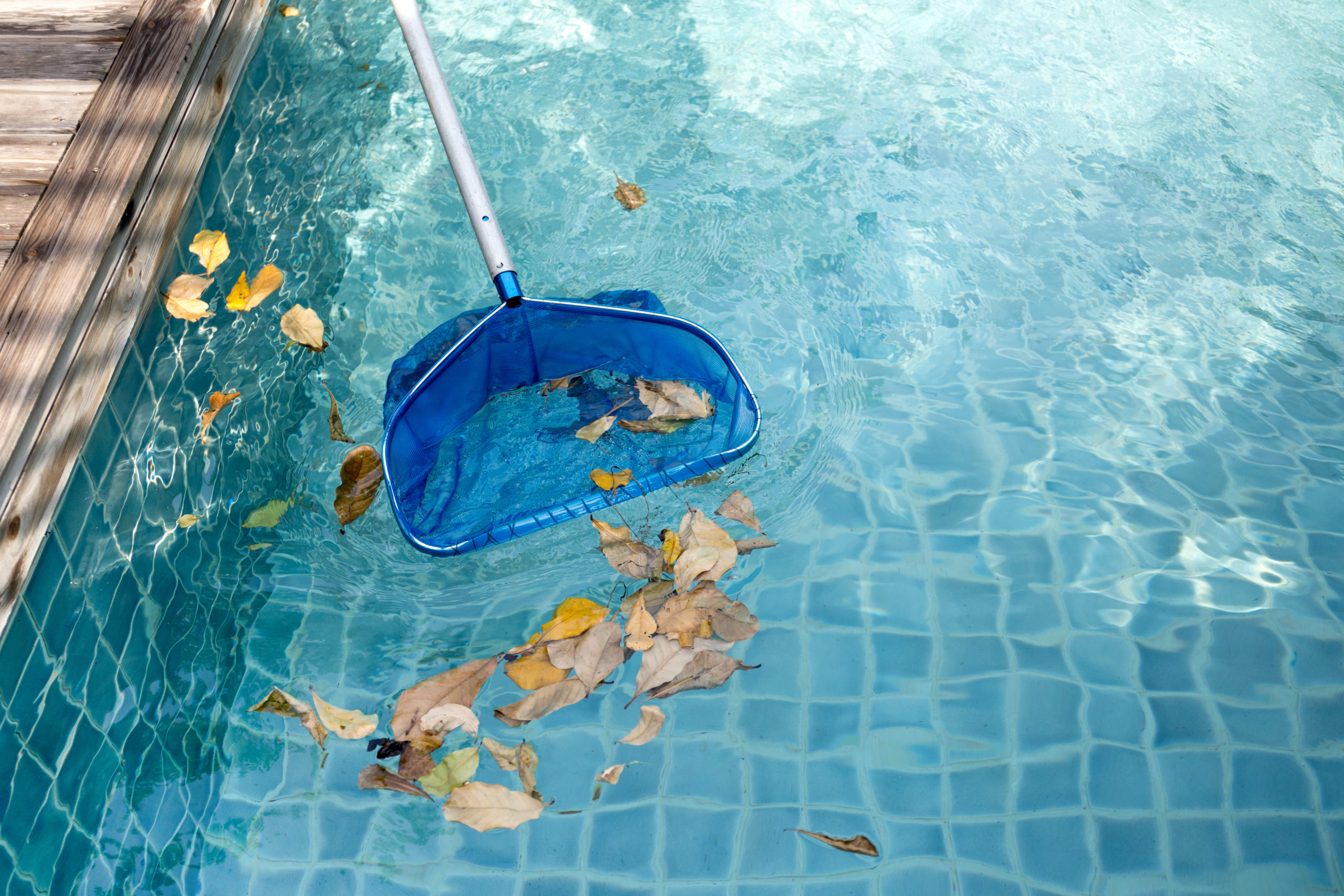
Through proper seasonal care of your swimming area along with effective debris management practices; you’ll find that maintaining an efficient swimming environment is not only possible but quite manageable!
Frequently Asked Questions
How Does the Design and Shape of the Pool Influence Its Maintenance?
The design and shape of your pool impact maintenance. Unique shapes require specialized pool lighting and filtration systems. Odd corners can trap debris, making cleaning harder. So, it’s important to consider maintenance in the design process.
How Often Should the Pool Water Be Tested for Chemical Balance?
You should test your pool water at least once a week using chemical testing kits. Not doing so can lead to unbalanced water consequences, which may affect swimmer’s health and pool equipment.
What Are Some Common Problems Associated With Maintaining Very Large or Small Pools?
You might encounter filter system complications with large pools and pool equipment issues with smaller ones. Both can lead to imbalances in water chemistry, making regular maintenance and checks critical for your pool’s health.
Is It More Cost-Effective to Hire a Professional for Pool Maintenance or Do It Yourself?
Whether you hire a pro or tackle pool maintenance yourself depends on your budget and skill level. Remember, DIY challenges can arise, and maintenance equipment isn’t cheap. Consider both options carefully before deciding.
How Does Weather and Seasonal Changes Affect Pool Maintenance?
Weather and seasonal changes greatly affect your pool maintenance. Climate resilience is key, as hotter weather increases evaporation requiring more water replacement. Conversely, in cooler seasons, you’ll deal with less evaporation but potential freezing issues.

